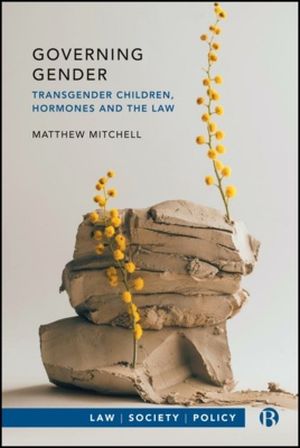
How do legal institutions shape the legitimacy of gender-affirming care for young people?
Through an analysis of 98 Australian Family Court cases over 20 years, this book provides a comprehensive scholarly investigation into this fiercely contested issue. The book reveals how courts deploy ontological, epistemological and teleological arguments to control gender affirmation practices. It demonstrates that legal regulations are not primarily concerned with individual welfare, but with controlling what gender itself can become.
Offering timely insights for scholars, policy makers and practitioners navigating the contemporary debates around transgender rights, the book exposes the gender-normative assumptions underlying legal interventions while advocating for a more expansive approach to legitimising gender-affirming care.